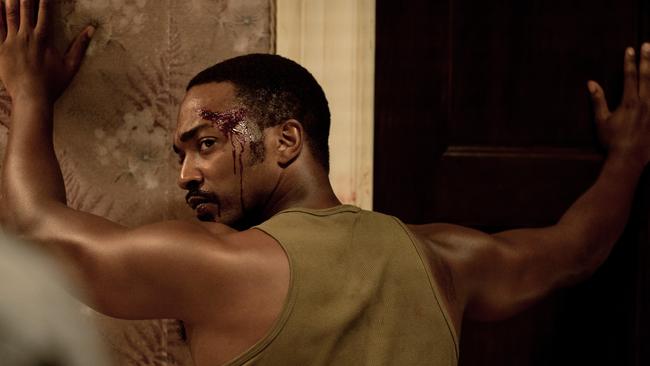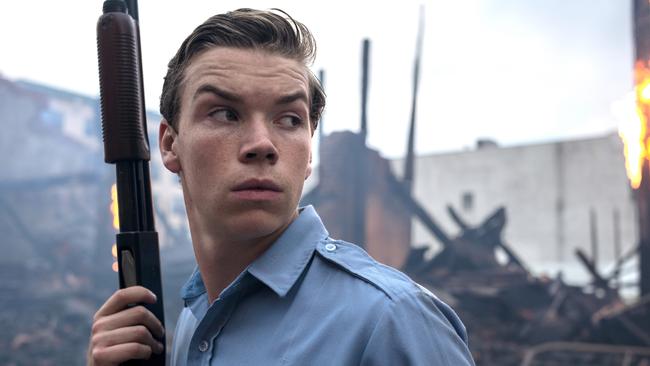Detroit is brutal, challenging and brilliant
IT’S definitely not a lighthearted romp in the park. But this visceral movie about violence, injustice and terror will stick with you.
New Movies
Don't miss out on the headlines from New Movies. Followed categories will be added to My News.
DIRECTOR Kathryn Bigelow doesn’t make easy-to-watch movies.
There’s not a lot of levity or warmth in them, especially her two most recent efforts, The Hurt Locker and Zero Dark Thirty.
As in those two movies, she’s teamed up with journalist and writer Mark Boal on Detroit, a searing portrait of the chaos, violence and injustice of the Algiers Motel incident.
The Algiers Motel incident was part of the 1967 Detroit riot, itself another piece of the patchwork of 159 race riots that rocked the US that summer.
Against the backdrop of days of rioting, looting and thousands arrested, the tenants of the Algiers Motel’s annex building, a mix of young black men and two white girls are having a good time or hiding from the action outside.
Among them are singer Larry Reed (Algee Smith), Army veteran Robert Greene (Anthony Mackie) and Julie (Hannah Murray).

When what sounds like a gunshot aimed at a battalion of National Guardsmen is heard from their direction, the Guardsmen, state troopers and Detroit cops all descend on the hotel with their hair trigger tempers, ready to “investigate”.
The city police are led by a young officer named Philip Krauss (an intense Will Poulter), a cop who earlier that day shot and killed a fleeing looter. Despite being told he could have murder charges laid against him, he was sent back in to the fray and looking to blow off steam.
Krauss and the two other white cops, Demens (Jack Reynor) and Flynn (Australian actor Ben O’Toole), are amalgams and pseudonyms for real-life inspirations.
Because what happens inside that hotel is a travesty, the kind of horror story that goes a long way to explain the violent legacy still plaguing black men in the US today, the kind of legacy evident in the response to shootings of unarmed victims like Eric Garner, Mike Brown and Tamir Rice, 12, by white police officers.
Bigelow is unflinching in depicting the utterly cruel and racist treatment inflicted on the black men by the cops. Looking away from the wall or any kind of “backtalking” gets you a beatdown, and that’s the best-case scenario.
Nor do the two white girls escape lightly — the idea that they could have been engaged in anything with a black guy is enough to condemn them.
Cries of “I didn’t do it” or “I’m not resisting” will not be heeded.

These scenes are visceral, nerve-racking and artfully made to maximise the terror. You could almost develop an ulcer sitting through them.
Detroit spends a decent chunk of time establishing the tinderbox atmosphere and the eventual eruption of the city to contextualise the fear and the fury. That looseness turns to a laser-focus when the action moves inside the motel.
Bigelow is brilliant at setting the scene, through the sounds of palpably angry mobs or the handheld camerawork, almost swirling around to put you off balance. Her close-ups, of the sweat beads or rolling tears, are highly effective.
Her and Boal’s collaborations have always yielded these challenging and powerful films and Boal spoke with the survivors of the Algiers Motel incident to write the screenplay, though the filmmakers do admit some dramatic licence was taken.
Detroit is vivid and it is demanding, designed to shake you out of complacency.
Rating: 4/5
Detroit is in cinemas from today.
For more on movies and TV, follow @wenleima on Twitter.
Originally published as Detroit is brutal, challenging and brilliant


